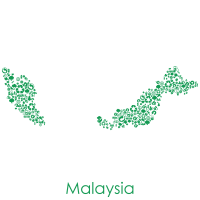2. Strategy for green development
Theme 3 of the 12th MP 1focuses on advancing green growth, improving energy sustainability and transforming the water sector. The five-year goal is a shift in national policies towards more sustainable economic practices and lifestyles that value resources and environmental health.
This shift will address climate change, unsustainable consumption and production practices, biodiversity loss, lack of coherence in policy implementation and inefficient water management. The need for shared responsibility in the transition to a low-carbon nation will be highlighted, while promoting more equitable sharing of benefits from the use of natural resources. Energy and water will be managed in a holistic and sustainable manner, taking into account the supply and demand of these resources. The energy sector will address the energy trilemma 2, while the water sector will focus on ensuring water security for all.
Under Theme 3, two game changers will be implemented, namely the adoption of the circular economy and the acceleration of the adoption of integrated water resources management (IWRM).
The transition to a circular economy (Tipping Point VIII) will bring significant improvements in system efficiency and costs, as well as reducing pressure on the environment. It will also deliver a more innovative and competitive economy and create new opportunities for green growth. Recognizing the need to address the challenge of balancing socio-economic development and environmental sustainability, the public and private sectors will be encouraged to adopt and integrate the SDGs and ESG principles into their decision-making processes. In addition to creating green job opportunities and ensuring resource security, the circular economy will reduce waste generation, pollution, greenhouse gas (GHG) emissions and dependence on natural resources. To accelerate the transition, an enabling ecosystem will be created and more sharing economy models will be promoted. The use of recycled materials and recycling of production waste will be increased, while producers' responsibility in managing their products at the end of their life will be expanded. All these initiatives will expand the green economy and facilitate the achievement of a low-carbon future.
Accelerating the adoption of IWRM (Turning Point IX) will be the starting point for transforming the water sector. Effective implementation of policies and strategies under Theme 3 will contribute to sustainable and resilient growth as well as the achievement of Agenda 2030. The Government recognizes the need for a comprehensive transformation of the water sector to ensure water security and sustainability. Ineffective management of water resources, inadequate understanding and lack of awareness have created environmental and social challenges that have impacted economic growth. A national approach involving all stakeholders will be adopted to instill a sense of ownership and responsibility in the protection and conservation of this precious resource. Water governance will be strengthened for effective management through review of existing laws and establishment of an integrated water data centre and research, development, innovation and innovation activities. Financial sustainability of water service providers will be improved to enhance the efficiency of service delivery.
1https://rmke12.ekonomi.gov.my/ksp/storage/fileUpload/2023/09/2023091116_1_overview.pdf
2Energy Trilemma: the balance between Sustainability (decarbonising energy), Security (ensuring the safety and reliability of energy supplies) and Affordability (minimising the cost of energy for consumers).
